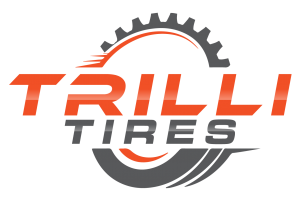
Tire Shopping For Drivers 101
It is a big decision to choose the right tires for your vehicle. To last a long period of time, tires must be durable and fit your vehicle. Before buying tires, there are some things that every driver should be aware of:
TIRE SIZE
For recommended tire sizes, first, consult the owner’s manual. These measurements should look like this: P215/60R16/94T. The first section is about the tire’s dimensions, including width and diameter. The load index is the last section, while the letters indicate the speed rating. Follow the recommended measurements of your vehicle’s manufacturer when tire shopping.
LOAD INDEX
The load index is an important factor when choosing the right tires. This is a number between two and three digits that indicates how heavy the tire can carry. Multiply the number by 4 to get the full load index. These numbers usually range between 60 (550 lb. From 60 (550 lb.) to 139 (5.357 lb.). Tires with a lower load index should be avoided. A local mechanic will be able to help you choose the right tire load index for your vehicle.
SPEED RATE
The speed rating is a number that indicates how fast the tire can heat dissipate heat. The rubber will wear faster if it is hotter than normal. T and H are the most popular rates. Tire failure or damage can result from exceeding this maximum rate.
TIRE TYPE
There are several common types of tires that have different speed ratings. The following types of tires can be used to find the right size for your vehicle with the assistance of a technician:
- All-Season: These are usually available in S and T-speed ratings. They are well-known for their all-weather grip, mileage, and durability. These tires are popular for SUVs and small- and medium-sized cars.
- Winter/Snow: Anyone who lives in areas that experience snow and wintery conditions should purchase snow tires. This will increase safety, braking, and steering ability on slippery roads. Winter/snow tires should only be purchased in sets of 4. This will ensure optimal handling and braking.
- Summer Tires: Mostly used by performance vehicles. These tires offer a much more powerful performance during the warm season and can handle high speeds. They usually offer less mileage in comparison to All-Season and Winter tires.
- Ultra-High-Performance Tires (UHP): UHP tires are available as all-season or summer All-season UHP tires are more efficient in snowy and icy conditions than summer tires. Summer UHP tires are better in rainy conditions. They are usually rated at speeds of Z, W, or Y.
TIRE BRAND
Stick with the same brand that came with your vehicle (if you like) when tire shopping. The tires that came with your car directly from the manufacturer are likely to fit your vehicle. You can find the original tires even if they have been worn or replaced. You can continue using the same brand if you haven’t had any problems with your tires.
LOCAL ENVIRONMENTAL EFFECTS
When choosing a tire type, it is important to consider the weather patterns and climate of your region. If you live in the northern part of Canada, where there is a lot of snowfall, and are subject to icy conditions, purchasing winter tires might be a good investment, especially in the coldest months. Winter tires might not be necessary for someone living in Texas, USA. Due to their compound, they are less capable to withstand snowfall as they start to harden when temperatures drop below 10 degrees Celcius.
WARRANTY
One of two warranties that a tire manufacturer might offer is a defect protection warranty and one that covers tread wear. Numerous tire manufacturers offer both a tread warranty and a defect protection warranty. Warranty coverage is based on how many kilometers the tires have traveled. Before you purchase your set, make sure to check the warranty and talk with your mechanic.
CONTACT US
TrilliTires can help you choose the right tires for your vehicle. We offer a wide range of auto mechanic services to Richmond Hill and surrounding towns. Call us at (905) 883-1118 to book an appointment
